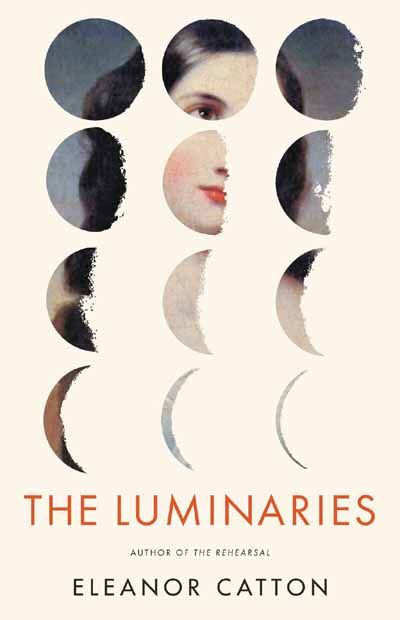Richard Ford - Canada
Tony Hogan Bought Me An IceCream Float Before He Stole My Ma – Kerry Hudson
Flight Behaviour - Barbara Kingsolver
Union Atlantic – Adam Haslett
Black Bread White Beer – Niven Govinden
The Goldfinch – Donna Tartt
Artful – Ali Smith
Harvest – Jim Crace
The Luminaries – Eleanor Catton
The Wasp Factory – Ian Banks
My top books of the year are mostly new releases with big Booker winner “The Luminaries” taking a prominent place. It’s such a complex, rewarding and intelligent novel it did really deserve to win the Booker. Speaking of award winners the book that I think should have won this year’s Women’s Prize for Fiction was Kingsolver’s “Flight Behaviour.” It’s a really heartfelt story of a woman making difficult choices in her private life as well as a moving meditation on environmental issues. I know many people are tired of reading the nearly-universal and never-ending praise for Donna Tartt’s “The Goldfinch” but it really is one of my top reads and totally mesmerized me. Another acclaimed writer whose book I absolutely loved was Richard Ford’s novel “Canada” which peters out somewhat towards the end, but has the most heart-breaking opening section. A book that totally swept me away was Ali Smith’s novel-ish book “Artful” which redefines the limits of what can be done in fiction while making every page feel immediately important and relevant to my life. "Harvest" attacked my subconscious and made its way into my dreams to leave me haunted and wondering. I’ve read Adam Haslett’s powerful stories before so was very excited to finally get to his novel “Union Atlantic” which is a really fascinating story about a few very different central characters and also a novel that critiques the causalities and pitfalls of capitalism gone mad. Two British books that captivated me are “Black Bread White Beer” and “Tony Hogan Bought Me an Ice-cream Float Before He Stole My Ma.” They explore areas of society and issues not often covered in contemporary fiction. Sadly, the author Iain Banks died this year which prompted me to reread “The Wasp Factor.” It’s so unbelievably original and has so many interesting things to say about masculinity and human nature. Now I must get to his other books.
It’s been interesting how starting this blog has prompted me to read more although I always have been an avid reader. I’m not sure anyone actually reads my posts (if you do thank you), but I’ve been enjoying the way writing about books helps me organize my thoughts and put them down someplace so I won’t forget them. Hopefully I’ll continue on all throughout next year. I know there are so many great books I didn't get to read this year. As always, I'm trying to catch up.




















